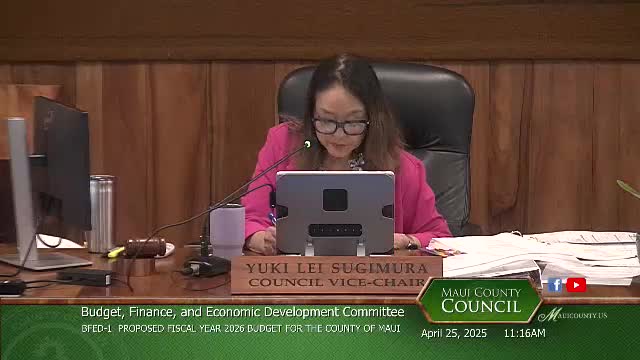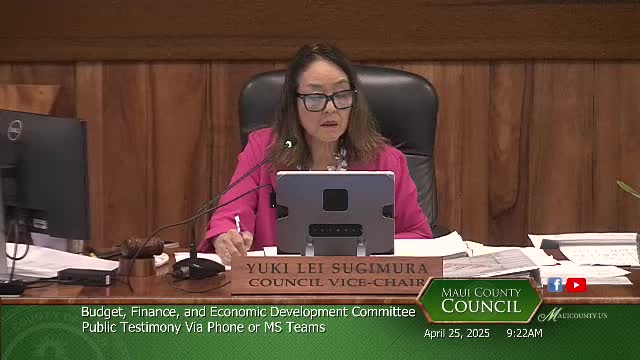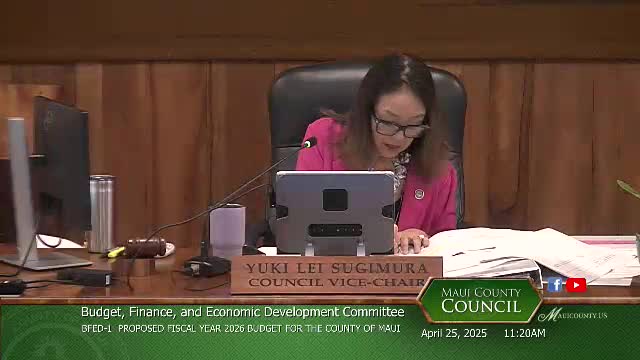Article not found
This article is no longer available. But don't worry—we've gathered other articles that discuss the same topic.

Committee adds $25 million grant condition for Kihei affordable apartments; vote advances funding amid questions over conditions

Local contractors urge council to revise Bill 54, say community workforce agreement would exclude merit-based firms

